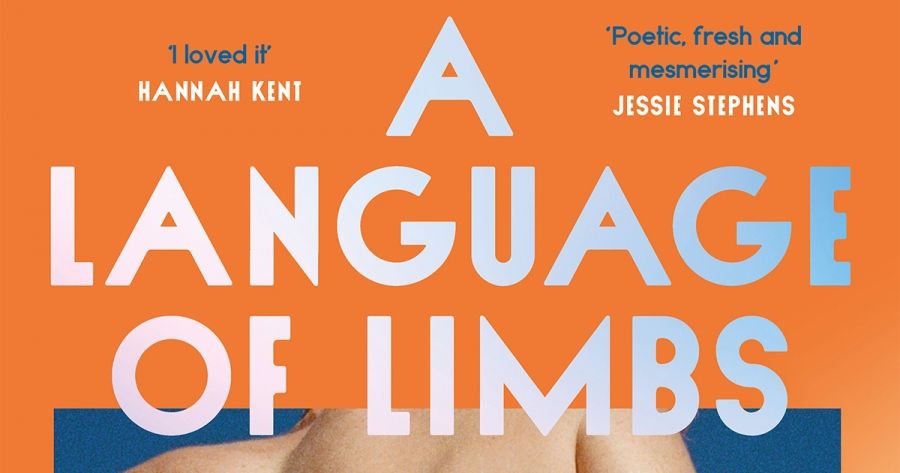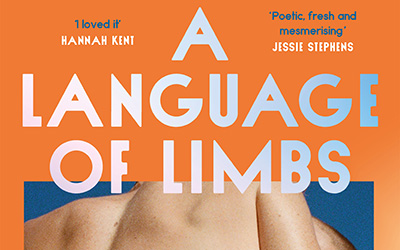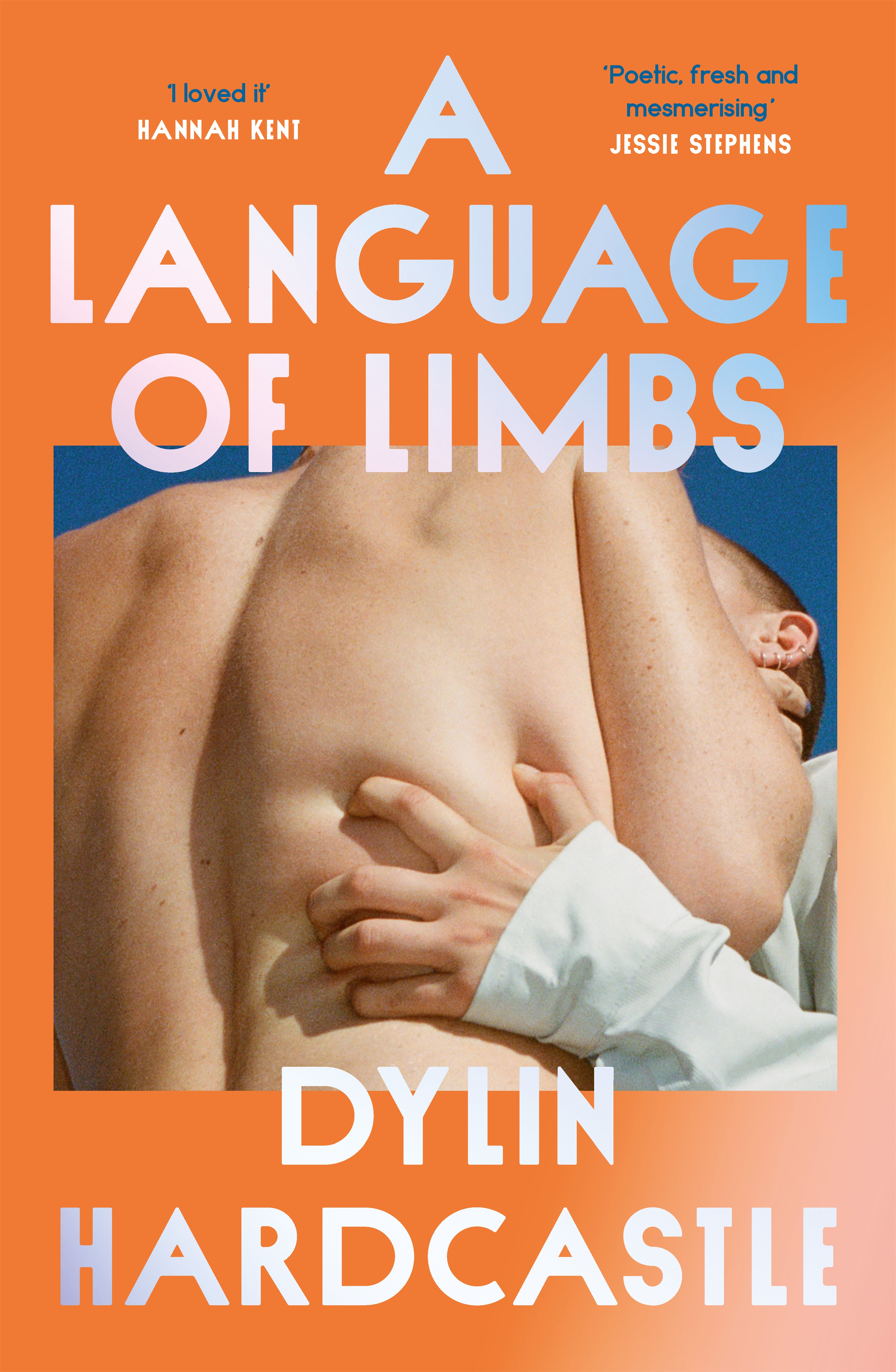
- Free Article: No
- Contents Category: Fiction
- Review Article: Yes
- Article Title: ‘Dancing on my tongue’
- Article Subtitle: A sapphic-heavy cultural moment
- Online Only: No
- Custom Highlight Text:
In early 1971, two Newcastle teenagers are overcome with sapphic appetites. Each is inflamed with lust for her childhood best friend, the literal girl next door. What to do about this forbidden desire? The first – Limb One – acts on her hunger. She enjoys a golden summer of covert fucking, before being discovered by her parents in flagrante delicto. After being beaten and kicked out of home, she hitches a ride to Sydney. True to herself, she is homeless and alone at sixteen. The second – Limb Two – follows the more well-worn path of repression. She buries her desires, acquires a boyfriend, studies hard. The good girl, beloved by her parents. One conundrum, two choices. How will the dice fall?
- Featured Image (400px * 250px):

- Alt Tag (Featured Image): Yves Rees reviews ‘A Language of Limbs: A novel’ by Dylin Hardcastle
- Book 1 Title: A Language of Limbs
- Book 1 Subtitle: A novel
- Book 1 Biblio: Picador, $34.99 pb, 290 pp
- Book 1 Cover Small (400 x 600):

- Book 1 Cover (800 x 1200):

This sliding doors moment is the premise of Dylin Hardcastle’s new novel, A Language of Limbs. After beachside opening scenes that conjure a queer Puberty Blues, the novel follows the two women (or ‘limbs’) for the next two decades, tracing their parallel lives via alternating chapters. Limb One washes up in the queer underworld of inner Sydney, finding her métier as a poet amid the convulsions of gay liberation and the AIDS epidemic. Limb Two clings tight to respectability, winning scholarships at the University of Sydney and marrying a nice young man. They are worlds apart, yet their stories keep colliding: at a university protest against gay discrimination, at the deathbeds of AIDS victims, at a gallery opening marked by violence. They are beguiled by Virginia Woolf’s Orlando and queer surrealist Claude Cahun. Each is blessed by murmurations and felled by inconceivable loss. Their lives mirror and echo each other, separate yet entwined. Again and again, the two limbs almost touch, uncanny doppelgängers unknowingly reaching out across the chasm that divided queer and straight worlds. Are they divided twins or star-crossed lovers?
A Language of Limbs is the latest contribution to what Rebecca Shaw, writing in the Guardian, has dubbed a ‘sapphic-heavy cultural moment’, a point of unprecedented ‘saturation (the collective noun) of queer women in pop culture’. Think the lesbian-dense Matildas, the sapphic romps Love Lies Bleeding and Drive-Away Dolls, pop star Billie Eilish declaring, ‘I realised I wanted my face in a vagina.’ As it happened, I read Hardcastle’s novel the same week Eilish’s ‘Lunch’ brought queer cunnilingus to the pop charts. ‘I want to eat that girl for lunch / Yeah, she’s dancing on my tongue,’ Eilish crooned as I read the lines ‘With her hand – inside me. With our mouths – ravenous.’ How things have changed since the 1970s, when, as Hardcastle depicts, the first Mardi Gras was hijacked by violent police and the arrested marchers were deliberately outed by the Sydney Morning Herald. My own teenage self, ashamed to be lusting after girls in early 2000s Newcastle, could hardly imagine the defiant joy of such a cultural tipping point. Looking back, it’s tempting to imagine my own sliding doors moment. Had I had access to Hardcastle and Eilish in 2001, how might my life have unfolded differently?
While A Language of Limbs is a novel of the Zeitgeist, it would be a disservice to Hardcastle’s literary craft to suggest that its merit chiefly lies in ‘good queer representation’. Hardcastle, already an accomplished writer, has attained a new confidence and fluency in their fourth book. The storytelling is minimalist yet deeply poetic, a hypnotic assemblage of sentences that trust the reader to fill in the blanks – a more fully realised version of the lyricism that distinguished the critically acclaimed Below Deck (2020). The prose is textured, viscous almost, an ooze of sweet honey shot through with golden light. It is the literary equivalent of a day abed with a new lover, every moment gilded and momentous.
Sex is more than metaphor here. Hardcastle writes sex (both queer and straight) with unusual precision, eschewing clichés of thrust and grind to get at deeper psychic truths of erotic yearning and connection. Indeed, this is where their truest talent lies: Hardcastle is a millennial poet of queer interiority and embodiment. A Language of Limbs is a novel of (impeccable) vibes and mood, a gay hymnal written from inside the guts of the two protagonists. We are privy to every flutter of their senses, every lick of limerence, while having little sense of their appearance or external identities or the broader social context. We don’t even know their names. (Until the final pages, Limb One goes by the gender-queer pseudonym ‘Little Dave’, while Limb Two remains unnamed.)
This is not a panoramic queer historical novel in the vein of Fiona Kelly McGregor’s Iris (2022), a meticulously researched recreation of Depression-era Surry Hills. A Language of Limbs is not (and does not pretend to be) a cinematic portrait of gay liberation and the AIDS epidemic. Although the novel incorporates key milestones such as the first Mardi Gras in 1978, the two protagonists (born, by my calculations, in 1955) are to some extent timeless archetypes rather than identifiable members of the postwar boomer generation. The novel is more concerned with their inner life than the larger world they inhabit. Yet this determined interiority is its own form of radical literary queering. To narrate sapphic embodiment from within, to write the erotic female body as subject, not object, without any sense of titillation or external gaze – that is still (alas) a rare and remarkable feat. Here are two women loving and fucking and creating, rendered as high art.
‘Look at our joy, our glorious, glorious joy,’ says the gay character Johnny in a pivotal scene. ‘It’s fucking radiating and all I want is for the world to see that I am bursting in love.’ There is still not enough queer joy in art – see, for instance, the trauma-porn excesses of over-hyped recent film All of Us Strangers. But Hardcastle is helping carve out a new lexicon of queer experience, one that can hold the glory alongside the pain. ‘my dead friends were so much fun / let me tell you,’ Limb One declares in a performance poem. ‘we had so much fun / let me tell you, / God, / it was worth it.’

Comments powered by CComment